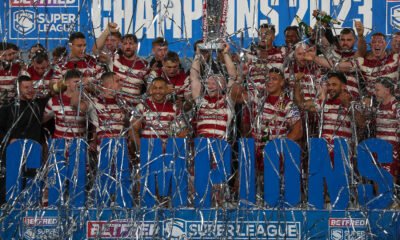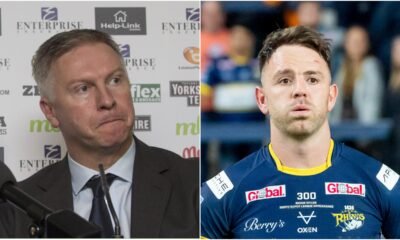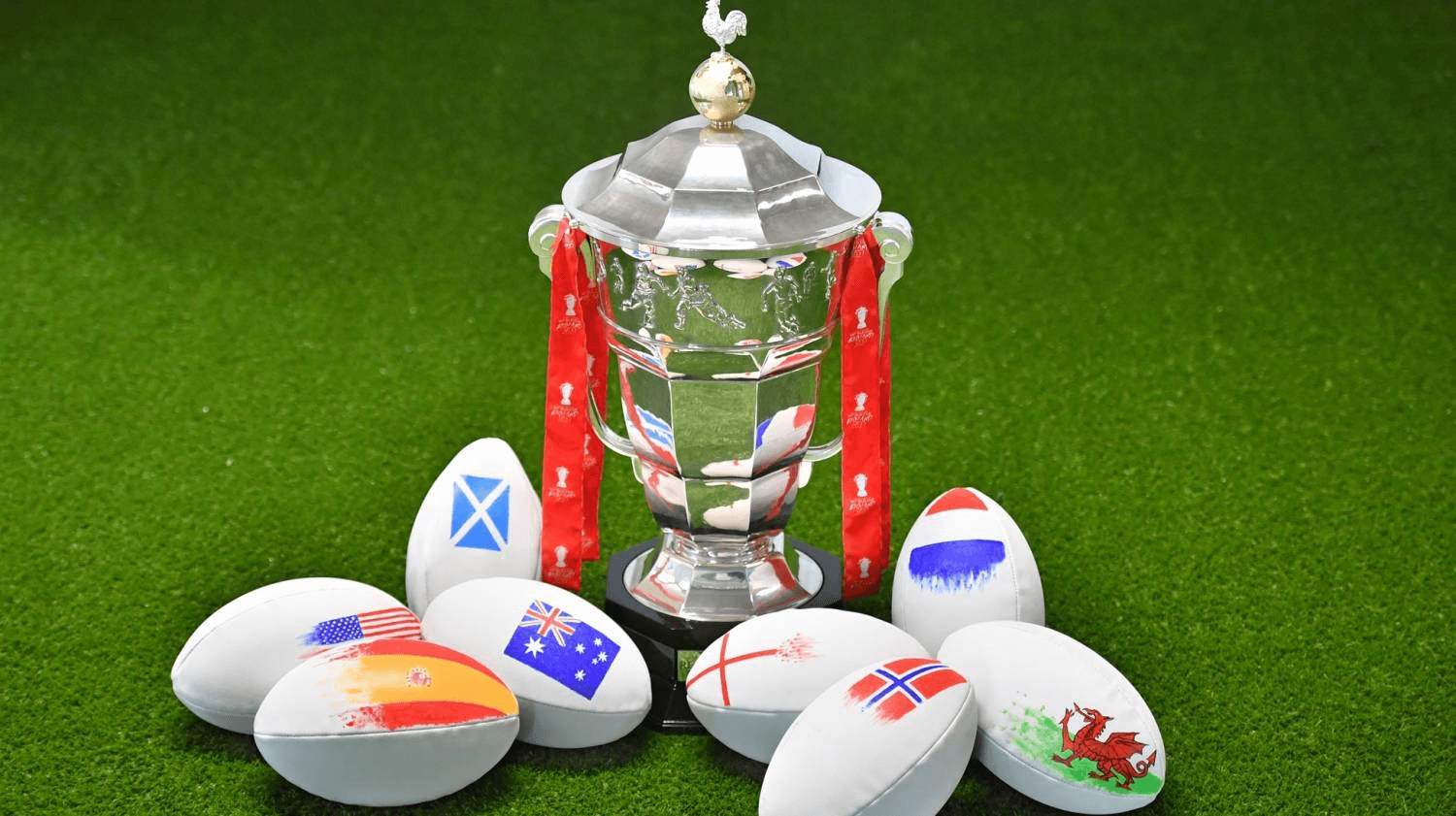
It will always be a mystery to me, why England struggled so much during the 2008 World Cup.
Granted you can look at the quality of the Australians boasting the likes of Billy Slater and Darren Lockyer or even the eventual winners New Zealand who had Benji Marshall leading them to glory, and say it’s clear why England floundered down under.
That said, defeat may have been likely but only as likely as when two top tier teams go toe-to-toe because make no mistake about it, that England squad was brimming with talent in 2008 and yet they not only lost to the Australians and Kiwis (twice) but they were often humbled if not by the final score line, then for large periods in which they failed to match their opponents.
You just have to look back at the start of the tournament, an unconvincing win over Papua New Guinea, and the questions begin to emerge and only intensify when you consider the 52-4 defeat to Australia which followed in the second group game. By the time they lost to New Zealand consigning them to third in the group, England had a -50 points difference as they tripped into the final four.
As I said earlier, you may see this as acceptable given the calibre of player in the opposing teams but when you consider the quality on show in Super League every week, then things begin to become quite perplexing.
To me, 2004-08 represented one of the peaks of Super League. A number of top teams full of stars emerged during this period but in particular two clubs stood out who’s success was underpinned by British talent.
By the time the 2008 World Cup had rolled around, St Helens were just two years removed from their all-conquering treble winning side of 2006 and the core of that team still remained intact and were indeed English. Paul Wellens, Ade Gardener, Leon Pryce, Sean Long, Kerion Cunningham, James Roby, James Graham and Jon Wilkin had all been a part of St Helens’ four consecutive table topping sides from 2005-08, the treble success of 2006 and their three consecutive Challenge Cup Final wins.
On top of that, they did it in style scoring tries for fun and going on a record-breaking unbeaten run in 2008 which took them all the way to the Grand Final. On that wet night in Manchester however, they were second best against a club who had begun dominating Grand Final night in the shape of Leeds Rhinos.
Again, due to the presence of the golden generation of home-grown talent Leeds boasted, the crux of their success from 2004-08 was built on English talent. Danny McGuire, Rob Burrow and Kevin Sinfield had all been key to a brutally dominant campaign in 2004 in which Leeds dethroned a treble winning Bradford Bulls side losing just twice in the league campaign and scoring over a thousand points.
Now they were matching a remarkable Saints side just a couple of years after they’d won the treble and in 2008 Leeds were again crowned the best in the world. That win at the expense of Melbourne should’ve truly underpinned England’s World Title hopes. Leeds had matched the Storm physically in the rain and wind of Elland Road, they’d nullified Billy Slater and ultimately kicked Melbourne to death – all things England would have to do to claim the World Cup down under.
Then you contemplate the brilliance of those Leeds players on the biggest stage and their sumptuous style of play at the start of 2008 in which they were devastating teams left, right and centre whilst only conceding the rare try and it becomes clear that this Leeds team – on their way to a historic three-peat – was one of the greatest in Super League history alongside their bitter rivals St Helens.
Within the two was the making of a side capable of ending England’s wait for World Cup glory. Great Britain had won the 1972 edition and this was perhaps England’s best shot at claiming the crown for themselves. It would have been poetic too for the Leeds players. Danny McGuire’s Grand Final try in 2004 had secured Leeds’ first title since 1972, so surely they could handle the pressure and deliver a first world title since 1972 wearing the white and red of England.
All of that is just acknowledging the two top teams. Beneath them were a whole host of brilliant sides swapping positions in the table. Some of Leeds’ golden generation had spread their wings and were staring for the likes of Wigan in the shape of Mark Calderwood and the Warriors themselves had their own host of exciting English stars including Sean O’Loughlin. Bradford were dwindling but still had plenty of quality to choose from especially with Sam Burgess’ pending move to the NRL and I’ve not even mentioned the other world class backrower heading down under in 2008 in the shape of Leeds’ Gareth Ellis who, alongside Jamie Peacock, gave Leeds a world class presence down the middle of the pitch. Peacock was also in great form having been nominated for the Man of Steel that year, he was ready to rock the Aussies down under.
Hull FC were just a couple of years removed from their brilliant 2006 season which was driven by English stars whilst a number of other clubs were on the up or had recently played play-off rugby thanks to stars born in this country. Look at Warrington and the brilliant Adrian Morley who was driving standards at the Halliwell Jones.
Across Super League there was a wealth of talent capable of challenging the Australians and Kiwis and pushing them all the way, further than they were ultimately pushed when it came down to the tournament itself.
Contemplate a team comprised of Paul Wellens, Ade Gardener, Leon Pryce, Keith Senior, Mark Calderwood, Danny McGuire, Sean Long, Adrian Morley, James Roby, Jamie Peacock, Sam Burgess, Gareth Ellis, Kevin Sinfield, Rob Burrow, James Graham, Sean O’Loughlin and Maurie Fa’asavalu and tell me why we didn’t come close to winning it. Then if you thing about the likes of Jon Wilkin, Ben Westwood, Jamie Langley, Martin Gleeson, Gareth Hock and others who don’t make that 17 but could’ve made the squad and it just becomes more bewildering.
Then of course, there’s Tony Smith. To me, Smith is the greatest Super League coach the competition has ever seen. Everywhere he goes, he brings success. At Leeds he began their transformation from bridesmaids into the most dominant team for the next 13 years whilst playing his signature, entertaining brand of rugby. At Warrington he turned them into competitors, created the best Warrington team for generations in 2011 and won a handful of Challenge Cups and at Hull KR he’s started a process which looks set to at least turn them into play-off regulars if 2021 is anything to go by. So why didn’t it work here?
It worked in his first year as international coach when Smith over saw an utterly dominant 3-0 series win over New Zealand so what changed in a year that saw New Zealand win the World Cup as England stuttered? A coach superb at development, a masterful tactician, orchestrator of great rugby and a consistently reliable winner at Leeds in the biggest games – why did we not see those qualities down under in 2008 when for all intents and purposes we should have?A
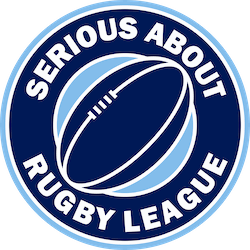
More in Features
-
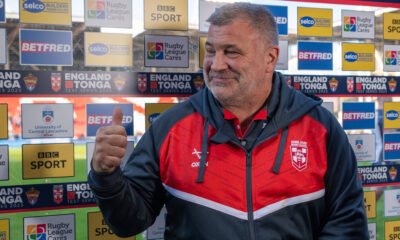

Predicting the England squad for the mid-season international
The England mid-season international is fast approaching! Shaun Wane’s side currently have a friendly...
-
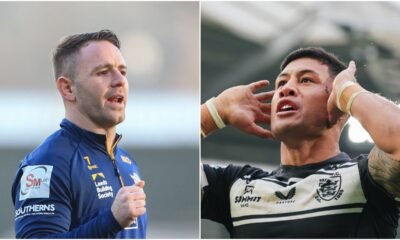

Three NRL players Hull FC can sign to replace Nu Brown
As part of a crazy couple of weeks for Hull FC, star Nu Brown...
-


Three biggest surprise package players in Super League so far
Prior to the Super League season, there were a number of very obvious candidates...
-
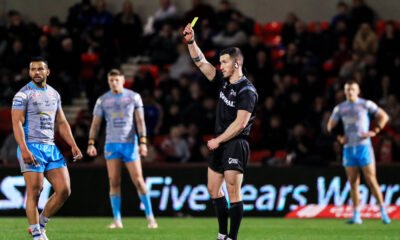

Super League Disciplinary: Challenge Cup sides in anxious wait over fear of bans
There might not have been any Super League action at the weekend but teams...










